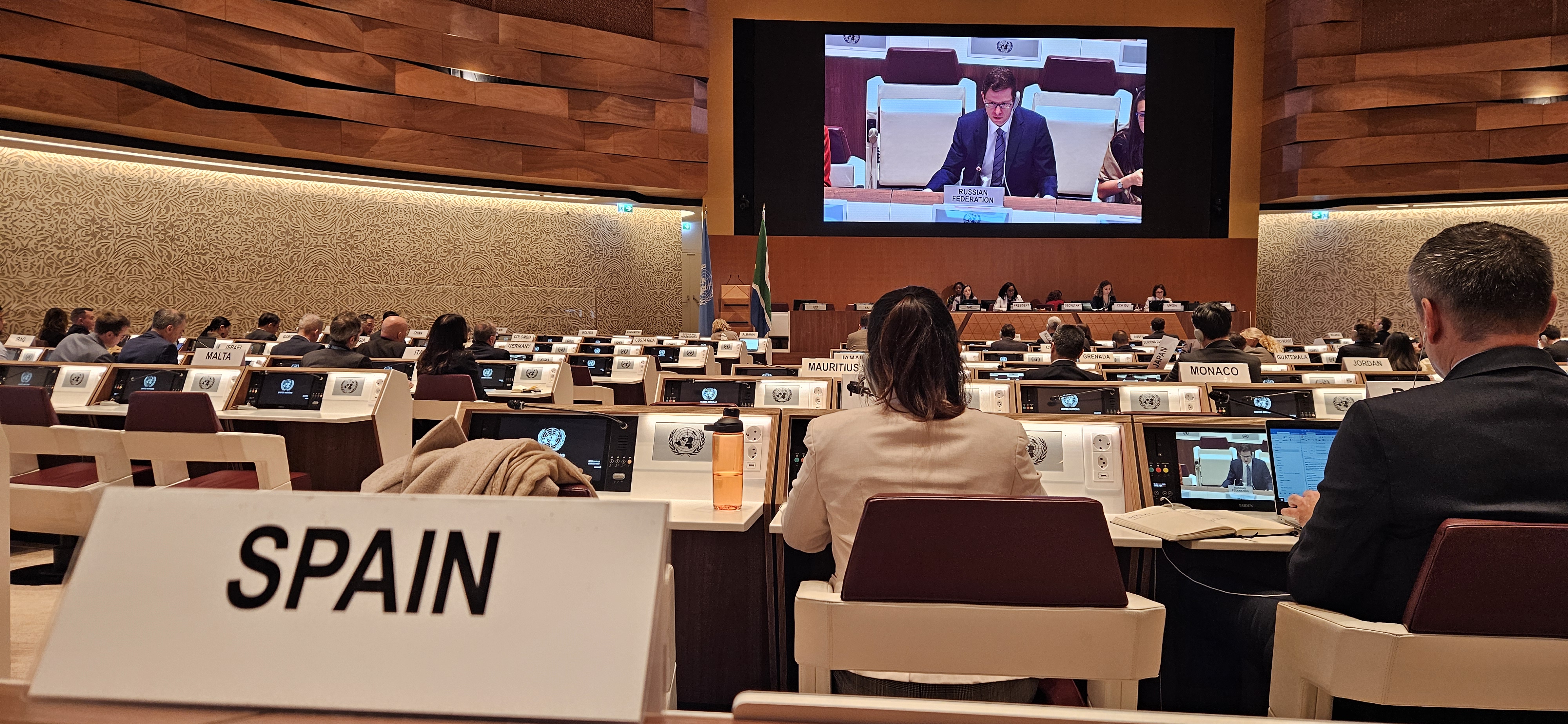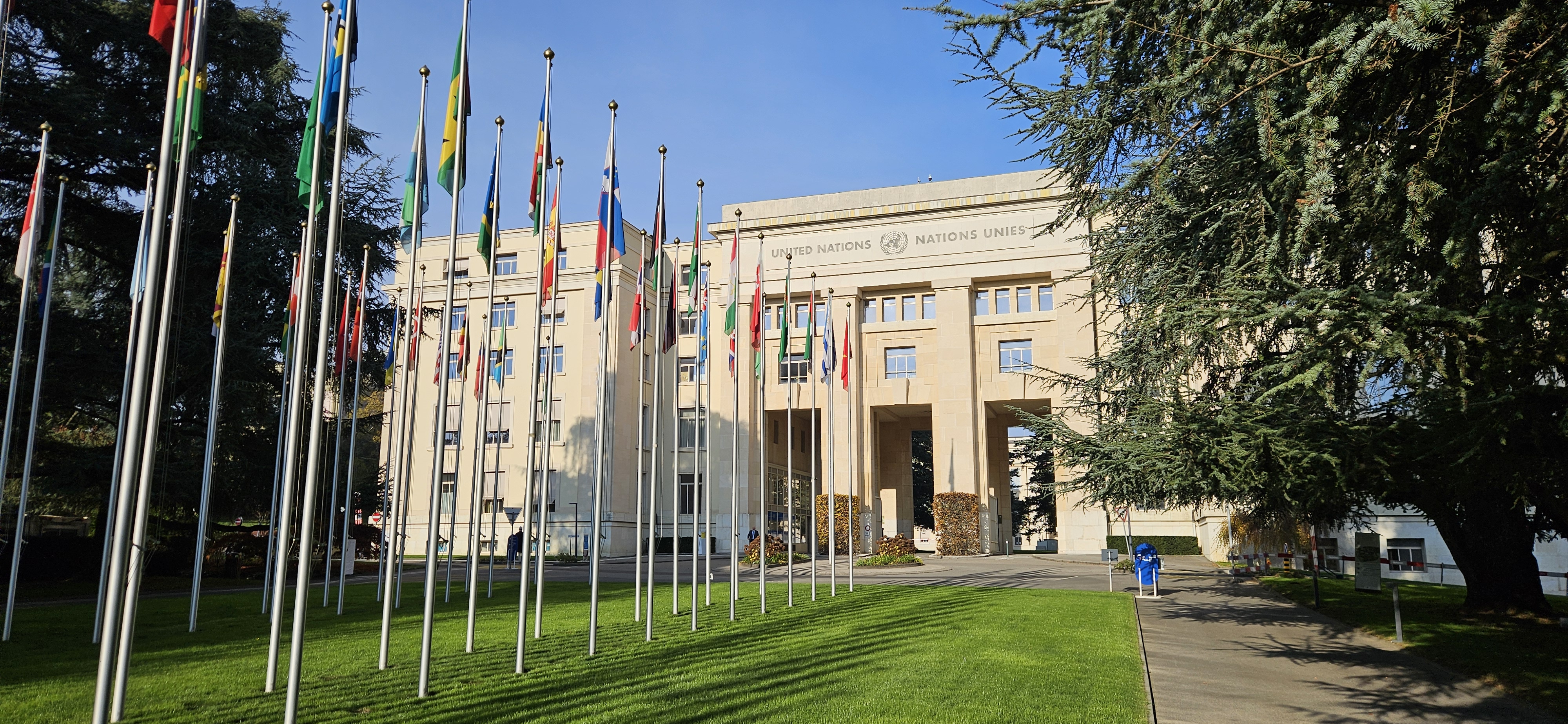
Spain participates in the conference on conventional weapons regulating the conduct of parties to the conflict
- The Convention on Certain Conventional Weapons (CCW) was held in Geneva, analysing compliance with the protocols and the training and assistance activities carried out over the past year
The ‘Palais des Nations’ in Geneva has hosted the ‘Convention on prohibitions or restrictions on the use of certain conventional weapons which may be deemed to be excessively injurious or to have indiscriminate effects’, (CCW), which annually reviews the functioning of the protocols that seek to regulate the conduct of all hostile parties within a conflict.
In particular, the 26th conference of Protocol II, addressing prohibitions or restrictions on the use of mines, booby traps and other devices, was chaired by South Africa's Ambassador to the United Nations, Tsholofelo Tsheole; and the 18th conference of Protocol V, focusing on explosive remnants of war, which was conducted by Iraq's Ambassador to the United Nations, Abdul-Karim Hashim Mostafa.
In the case of Spain, the Verification Unit (UVE) of the Defence Staff reported on various training and assistance activities carried out during the year 2024 in the Republic of Moldova, Poland, Switzerland and Germany. Moreover, it was highlighted the great usefulness of the annual reports that, like Spain, each country issues to assess the degree of implementation of the Convention.
In addition, great importance was also given to the efforts made to date to achieve the large number of States Parties that have signed these protocols, one of the objectives being to achieve universalisation of these protocols.
The CCW was adopted on 10 October 1980 and entered into force in 1983. Currently, more than 100 countries have ratified or acceded to it. The text of this treaty, consisting of 11 articles and 5 protocols, is considered a key instrument of International Humanitarian Law.
Fotos



